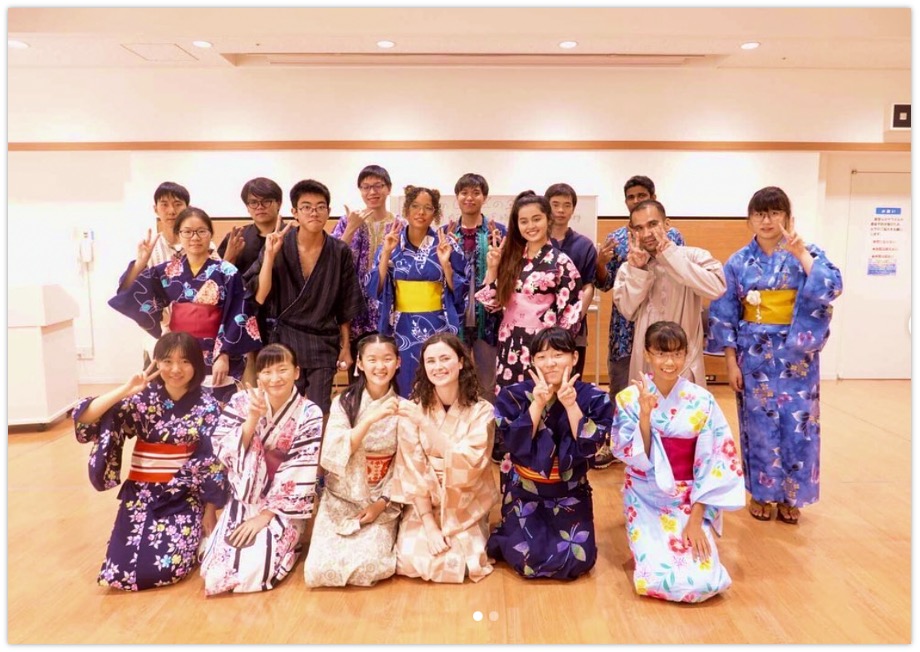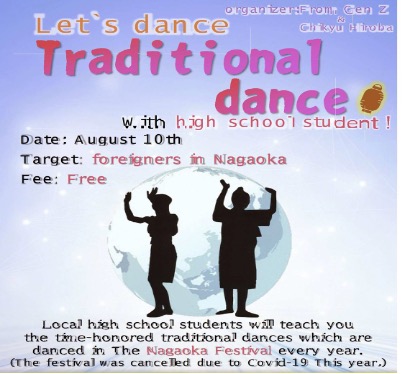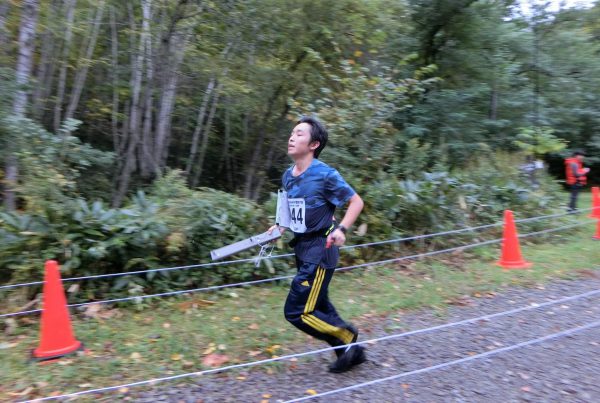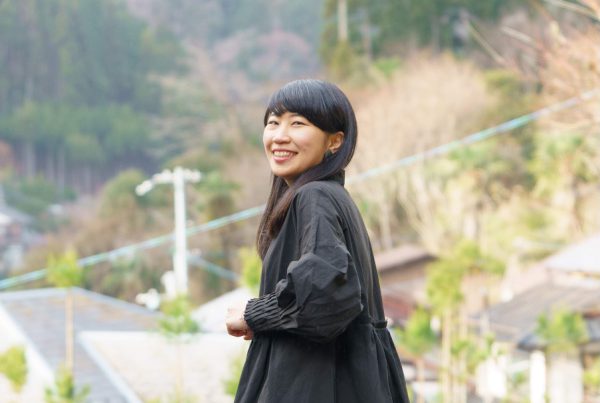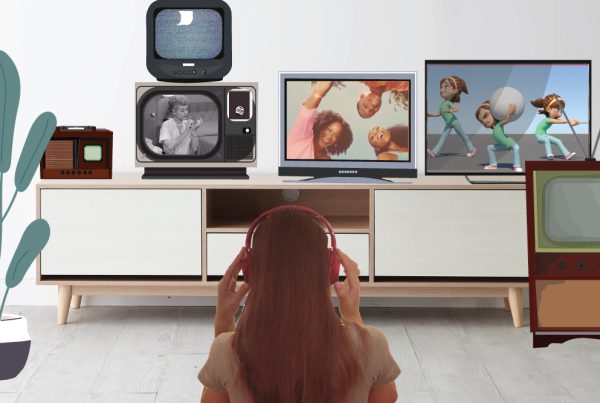We often hear the sentiment that young people are the future. They will be the ones to shape and change our world in unimaginable ways. They will be the ones to directly impact the success of the world 20 years from now. But that narrative trivializes the value of youth in the present. When we think of young people as passive beneficiaries rather than active partners, we miss out on the experiences and ideas they bring to the table. Sarah Allen, who made history at UNGA “youth” week in 2018 with her speech, “Young people aren’t just the future. We’re the present” or Greta Thunberg, a Swedish environmental activist known for challenging world leaders to take immediate action for climate change mitigation, are just a few examples. Looking around our communities, we can find many young voices that we need to consider.
The Nagaoka Review team had the opportunity to speak with three high-school students, Yunyang Wang, Kotaro Tanemura, and Ayari Minagawa, the founders of the ONG – “From Gen Z” about their desires for paving the way towards this goal and how they are contributing to building a more vibrant and inclusive symbiotic society.
NR: How did From Gen Z start? What was the moment that motivated you to initiate it?
From Gen Z: From Gen Z officially started in March this year, correctly saying we are a young organization, but the idea itself appeared some time ago. It all started with our desire to promote socio-cultural understanding between generations and increase the participation of high school students in the social life of our community, by organizing projects and events where students and people from different cultural backgrounds, areas of activity, and generations come into contact with one another. And we genuinely believe that we, Z Generation, can and need to contribute to society’s development.
NR: What made you pick the form of a youth NGO to make that change?
From Gen Z: Given the large amount of time we spend in school by learning and experiencing limited opportunities without having the possibility to build specific experiences for other people or us, it is not surprising that we have a perceived lack of experience to interact with people from different cultural backgrounds. We are more present on social media than everyday life and facing so-called “intergenerational conflict” or “generation gap.” Today’s young people need to be more involved in community life; understanding this, we realized that to help, we would need to found an NGO for students to recognize us and want to join us and share their ideas with us more easily. We realize that our social impact is enormous as a group of people, and together we can do great things.
NR: What were things that were easier or harder than you expected in the process of growing the NGO and taking action?
From Gen Z: Knowing that three people running an organization would not be enough, we expanded From Gen Z by recruiting more people to help achieve a lasting impact. Today our organization count around 32 volunteers, all working to support From Gen Z mission and contribute to a better society. But what surprised us was that once we had our non-profit status approved, it was easy to find people interested in participating in the project initially. Here we are not speaking just about our school colleagues. Our volunteers are from Nagaoka High School, Nagaoka Technical High School, and Nagaoka Ote High School.
" We are a fun organization that focuses on volunteering activities and organizing socio-cultural events with and for all members of our community. We're trying to create an intercultural bridge not just between cultures but also between generations."
On the other hand, what surprised us due to its complexity was how hard it can be to organize an event, even a smaller one, if you don’t have the necessary experience. Every step can take up incredible amounts of time, from booking a space to arranging the minor details. And we need to say that without our colleagues, mentors, and partners’ support, we would not have been able to be here today and speak about our realizations.
NR: You started your activity at a very challenging time, but you have already managed to organize some events. Could you tell us more about this?
From Gen Z: One of the Generation Z projects was a psychology session in collaboration with Saito Kichi, a Sociology Lecturer. Also, last month, in collaboration with Nagaoka International Affairs Center Chikyû Hiroba, we held a traditional dance event on August 10th. During the Nagaoka Fireworks Festival the main attractions are parades of traditional music and dance. Due to COVID-19 restrictions, the event was canceled this year, but we tried to recreate the festival’s spirit through a unique dance event.
Traditional dance special event. Image via From Gen Z_
Nine Japanese and thirteen international students of different ages took part in a time-honored traditional dance workshop and learned more about the history of its culture together. This event aimed to introduce foreigners living in Nagaoka to another cultural element of our country and improve relations between them and the Japanese. We hope our foreign participants became more interested in our culture, and high school students understood the need for intercultural communication.
"This event is another demonstration of the uniqueness of Japanese culture and traditions. We had one of the most incredible opportunities to meet people from the older generation who have spoken to us with such dedication about this tradition and to enjoy the friendly atmosphere while learning how to combine traditional dance elements reminiscent of fireworks with traditional Japanese music over 100 years old."
Zhiming Shen
NUT International Student from China
NR: What have you learned about the young people around you through these projects?
From Gen Z: We are all students, and perhaps this is the main reason why we easily understand each other’s personalities and priorities. After launching some projects, we know the importance of “intrinsic motivation” or how it can quickly change in young people. This understanding helps us plan more rapidly because we understand how to use “high energy” periods without being taken back when people become busy due to other priorities.
NR: Is there something that you have learned through your experience working with young people and different experts that you would like to highlight?
From Gen Z: It would be essential to learn how to keep people motivated and build a stable and long-lasting structure to achieve a more significant impact.
We believe that high school students like us need to learn more about the importance of volunteering and social engagement in the community. Getting involved in local community activities or volunteering allows us to connect to our community, make it a better place, increase our social skills, and make new friends and contacts. And finally, to make our voices heard.
Volunteering activities. Image by From Gen Z
NR: What is the From Gen Z future vision?
From Gen Z: Over the past few months, we have learned how important it is to work in a team and have enjoyed collaborating with people from all different cultural backgrounds and areas of activity. And our big vision is to live together as active members of the local community and make Nagaoka a more multicultural society.

